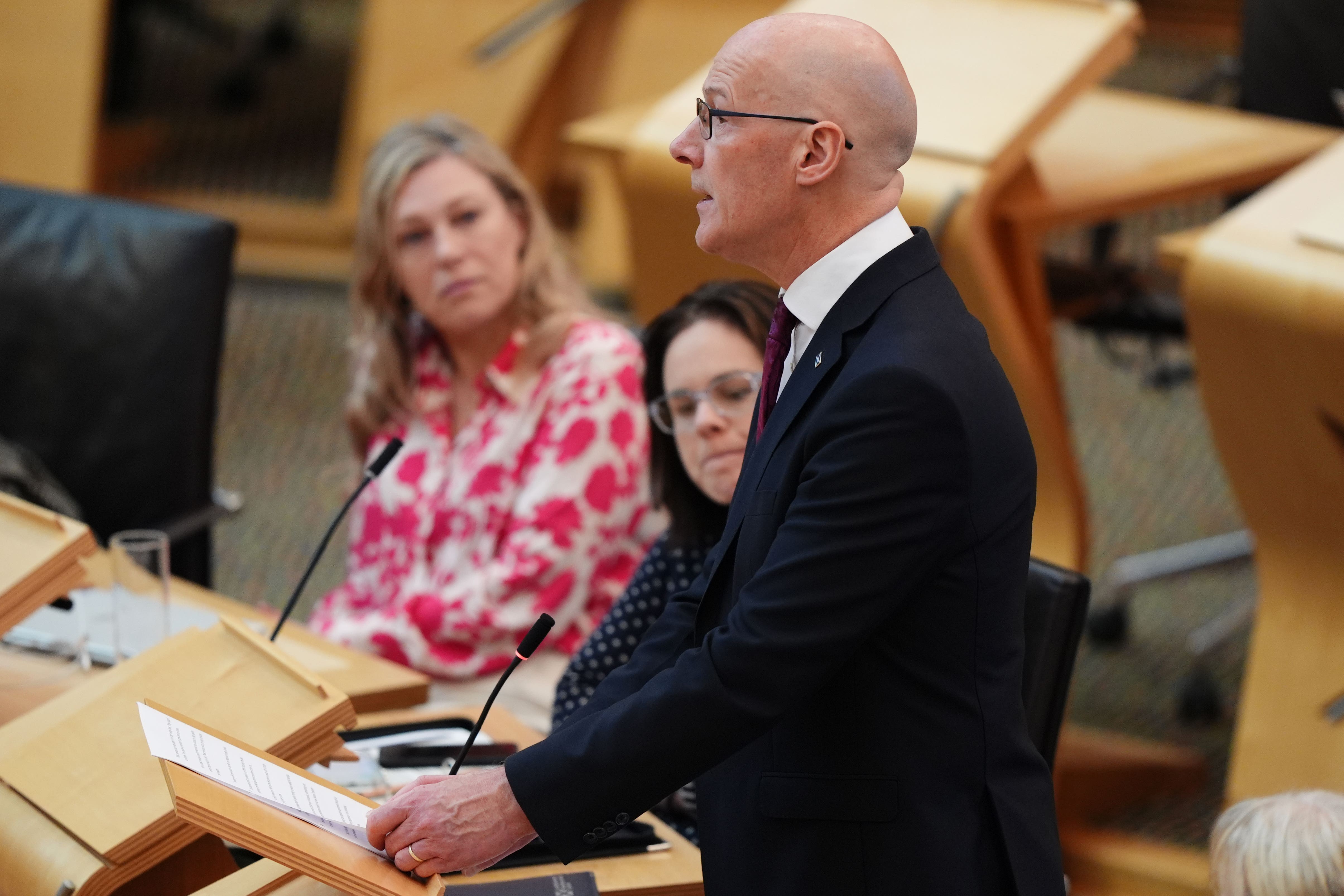Swinney: Westminster to blame for scrapping of free school meal pledge
The move was announced in the Programme for Government on Wednesday.

Your support helps us to tell the story
From reproductive rights to climate change to Big Tech, The Independent is on the ground when the story is developing. Whether it's investigating the financials of Elon Musk's pro-Trump PAC or producing our latest documentary, 'The A Word', which shines a light on the American women fighting for reproductive rights, we know how important it is to parse out the facts from the messaging.
At such a critical moment in US history, we need reporters on the ground. Your donation allows us to keep sending journalists to speak to both sides of the story.
The Independent is trusted by Americans across the entire political spectrum. And unlike many other quality news outlets, we choose not to lock Americans out of our reporting and analysis with paywalls. We believe quality journalism should be available to everyone, paid for by those who can afford it.
Your support makes all the difference.Scotland’s First Minister has blamed the previous UK government for his scrapping of a pledge to provide all primary school pupils with free schools meals.
John Swinney laid out his Programme for Government on Wednesday, with a particular focus on child poverty.
But coming just 24 hours after his Finance Secretary made about £500 million of cuts, Mr Swinney’s 47-page document rolled back on the Government’s commitment to universal free school meals, which was pledged in the SNP manifesto at the 2021 Holyrood election.
Instead of universal provision, the rollout will only reach Primary 6 and Primary 7 pupils who are in receipt of the Scottish Child Payment, but a spokesman for the Government confirmed on Wednesday additional funding from the UK Government could be used for the policy if it becomes available.
The Government is facing very challenging financial times
“The Government is facing very challenging financial times,” Mr Swinney said under questioning from outgoing Scottish Tory leader Douglas Ross at First Minister’s Questions on Thursday – the first sessions since the summer recess.
“I set out yesterday that we will deliver the commitment to ensure that free school meals are available for Primary 6 and 7 pupils who are eligible for the Scottish Child Payment.
“But we will not be able, in this parliamentary term, to roll out the eligibility on a universal basis across Primary 6 and 7 pupils, because our budget has been eroded by the fiscal mismanagement and sky-high inflation which Douglas Ross was party to creating as part of his support for the UK Government.”
Earlier on Thursday, Deputy First Minister Kate Forbes said the Scottish Government remained committed to the policy of universal free school meals, but could not say when it could be enacted.
“We have not ditched the pledge to roll it out,” she told BBC Radio Scotland.
“What we are saying is like so many parts of the Government’s commitment, it is contingent on funding being made available.”
Responding to the First Minister, Mr Ross said: “He is now announcing today to people across Scotland that the promise he made, the promise he asked people to support the SNP (on) to get them into Government, has now been broken.”
He added: “For 17 years this Government has over-promised and under-delivered for Scotland’s children, no one will believe yet another empty SNP promise to add to the pile.
“This week’s programme for government was supposed to be John Swinney’s big re-launch, but instead, we got more of the same from an SNP Government that is out of ideas and out of ambition.”
Mr Swinney was also criticised for the move by his former coalition partners, the Scottish Greens.
The party’s co-leader, Lorna Slater, said they had secured the commitment to free school meals in the budget deal of 2021, adding: “The Scottish Greens champion free school meals, because we know getting food to hungry kids is a compassionate and effective way to mitigate the impacts of child poverty.
“Yet as soon as the Greens are out of the room, the Scottish Government drops the policy.
“Can the First Minister explain how we’re supposed to take seriously his commitment to tackle child poverty?”
The First Minister reiterated the “acute” financial issues facing the Government, saying inflation has eroded about 20% of its budget in the last three years.
“We’re having to find about £800 million in this financial year to make public sector pay claims,” he added.
“Lorna Slater will know from her experience in Government that once the financial year starts, the Government cannot expand the resources available to us.
“We have a fixed sum of money available to us, once the financial year starts.
“All we can do is receive consequential funding from the UK Government which might expand that, or we can re-allocate resources within the budget.”
The First Minister added that the Government had “reluctantly” taken the decision to drop the commitment to universality, adding that the Government sometimes has to “face up to difficult financial choices”.
On Thursday, the Scottish Government announced £1.57 million of funding for five projects in Inverclyde, North Ayrshire, East Ayrshire, Aberdeen and Perth and Kinross which will provide whole-family support in the hopes of tackling child poverty.
“We know families will only be able to thrive if they have access to the right support at the right time,” said Social Justice Secretary Shirley-Anne Somerville.
“Designing services around people’s needs means they work better for low-income families, for example to help maximise their incomes, support parents into work and improve the overall wellbeing of families.
“We want to work together with local government to deliver our shared priorities, which include tackling child poverty, to embed this model of whole family support with the potential for this to continue to be expanded further over time to more parts of the country.”